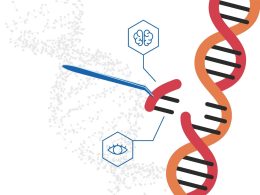Depression and anxiety are common mental health conditions that affect millions of people worldwide. While there are various treatments available, from therapy to medication, an unexpected ally in the battle against these disorders has emerged: the soothing melodies of birdsong. Recent studies have revealed that bird song can have a profound impact on alleviating symptoms of depression and anxiety, offering a natural and accessible form of support for mental well-being.
The connection between nature and mental health has long been recognized, but the therapeutic benefits of bird song have gained increasing attention in scientific research. The melodic tunes and harmonious sounds produced by birds have a unique ability to evoke positive emotions and promote relaxation. Listening to birdsong triggers a physiological response in our bodies, reducing stress hormones and activating the parasympathetic nervous system, which is responsible for relaxation and restoration.
One key factor in the antidepressant effects of birdsong lies in its impact on the brain’s reward system. The pleasant and repetitive patterns of bird songs stimulate the release of dopamine, a neurotransmitter associated with pleasure and reward. This neurochemical response can counteract the reduced dopamine levels often observed in individuals with depression and contribute to a sense of well-being and happiness.
Moreover, the rhythmic and predictable nature of birdsong can help regulate breathing and induce a meditative state. When we focus on the melodious sounds of birds, our attention shifts away from negative thoughts and worries, allowing for a temporary respite from the symptoms of depression and anxiety. The calming effect of bird song can also help reduce heart rate, lower blood pressure, and promote a general sense of relaxation, aiding in the management of anxiety symptoms.
In addition to its immediate effects, bird song has the potential to enhance overall mental well-being. The sounds of nature, including birdsong, provide a connection to the natural world, which has been shown to have a positive impact on mental health. The immersive experience of listening to birds in their natural habitat can foster a sense of awe and wonder, promoting feelings of connectedness, reducing feelings of isolation, and improving overall mood.
Engaging with bird song can be as simple as spending time outdoors, visiting parks, or exploring natural habitats where birds are present. The act of intentionally immersing oneself in the soothing sounds of birdsong allows for a mindful and therapeutic experience, where individuals can momentarily detach from the pressures of daily life and find solace in the beauty of nature.
Incorporating bird song into daily routines and environments is another approach to reap its antidepressant benefits. This can involve playing recordings of birdsong at home, in offices, or even in healthcare settings. The gentle melodies of birds can create a calming ambiance, fostering a serene and stress-free atmosphere. Some healthcare facilities have embraced the concept of “healing gardens” where patients can enjoy the sights and sounds of nature, including bird song, as part of their treatment plans.
While bird song should not replace professional medical advice or treatments for depression and anxiety, it can be a valuable complementary tool in managing symptoms and promoting overall well-being. It offers a natural, cost-effective, and accessible option for those seeking additional support for their mental health.
In conclusion, the therapeutic benefits of bird song are increasingly recognized in the field of mental health. Its soothing melodies have the power to reduce stress, activate the brain’s reward system, and foster a sense of connectedness with nature. By embracing the natural antidepressant qualities of bird song, individuals with depression and anxiety can find solace, experience moments of tranquility, and discover a renewed sense of hope in the melodies of our feathered companions.












